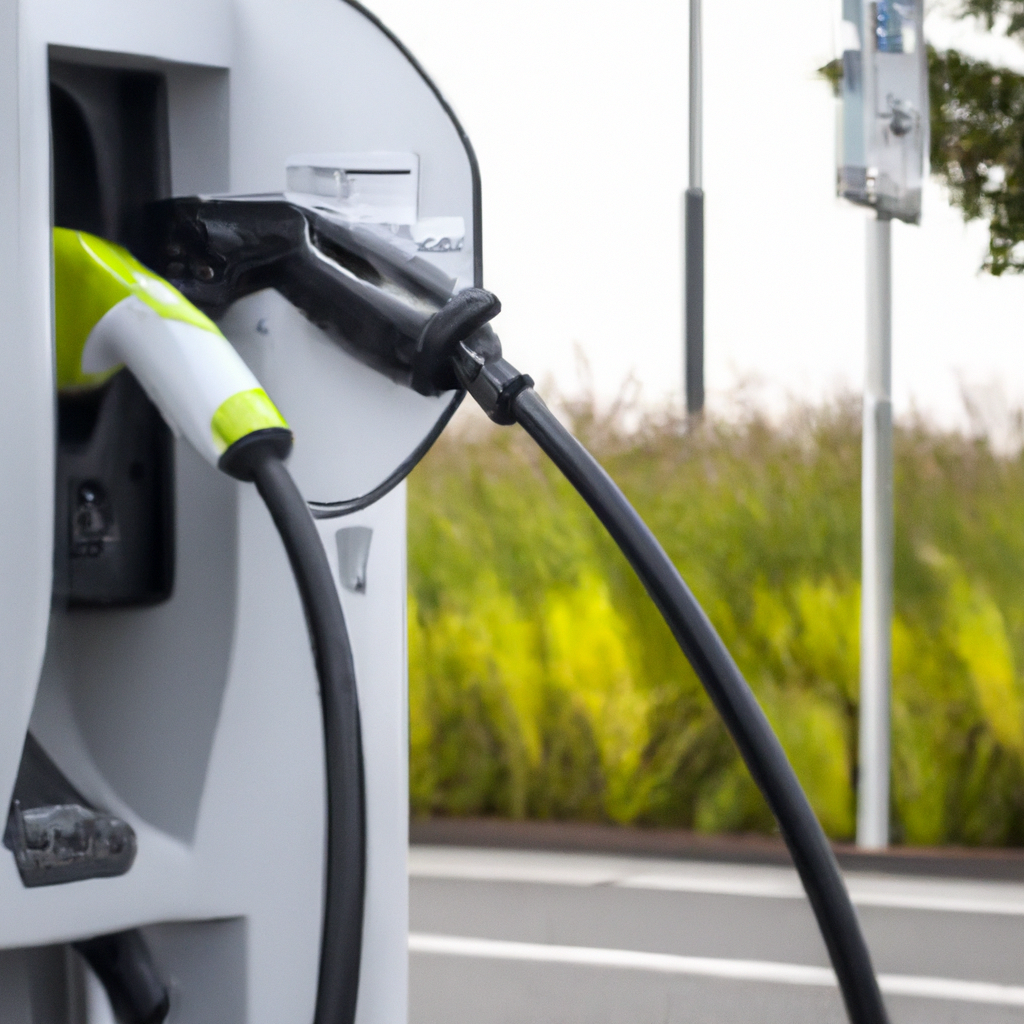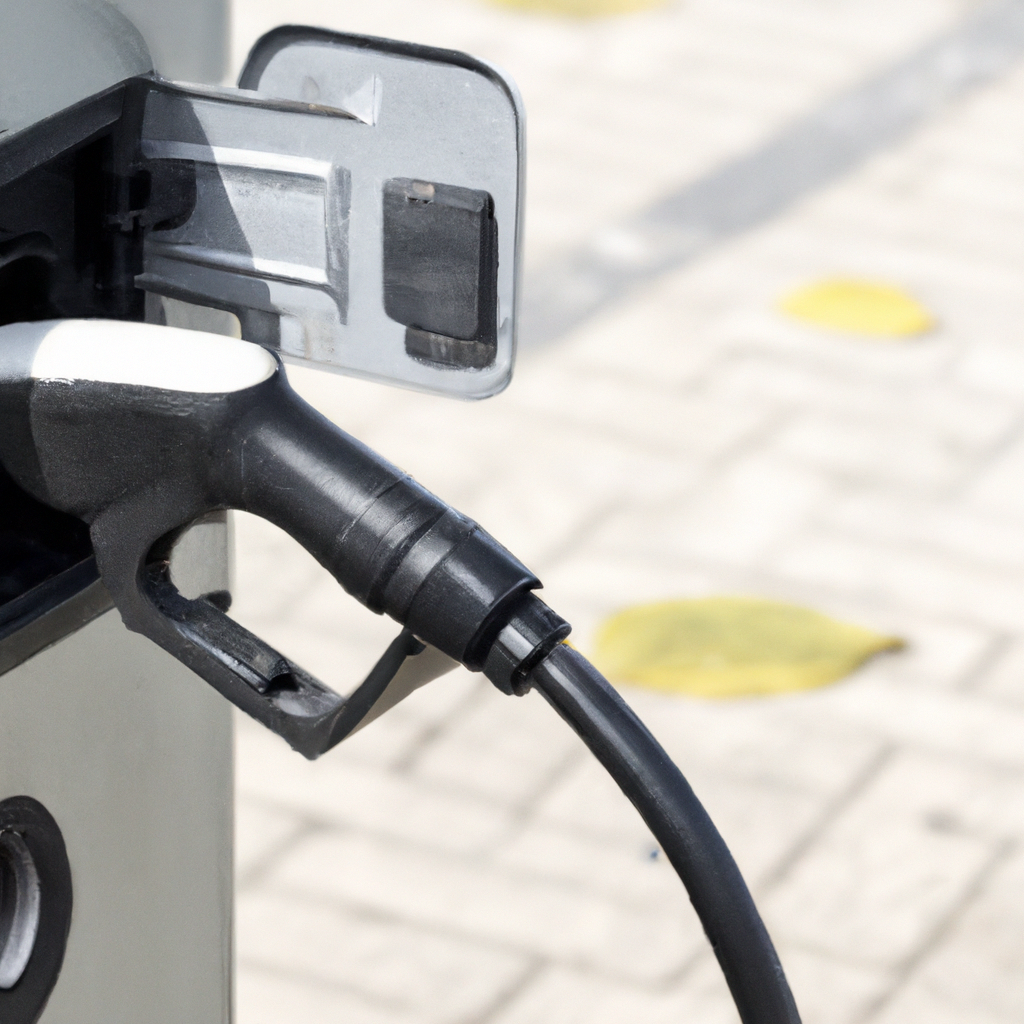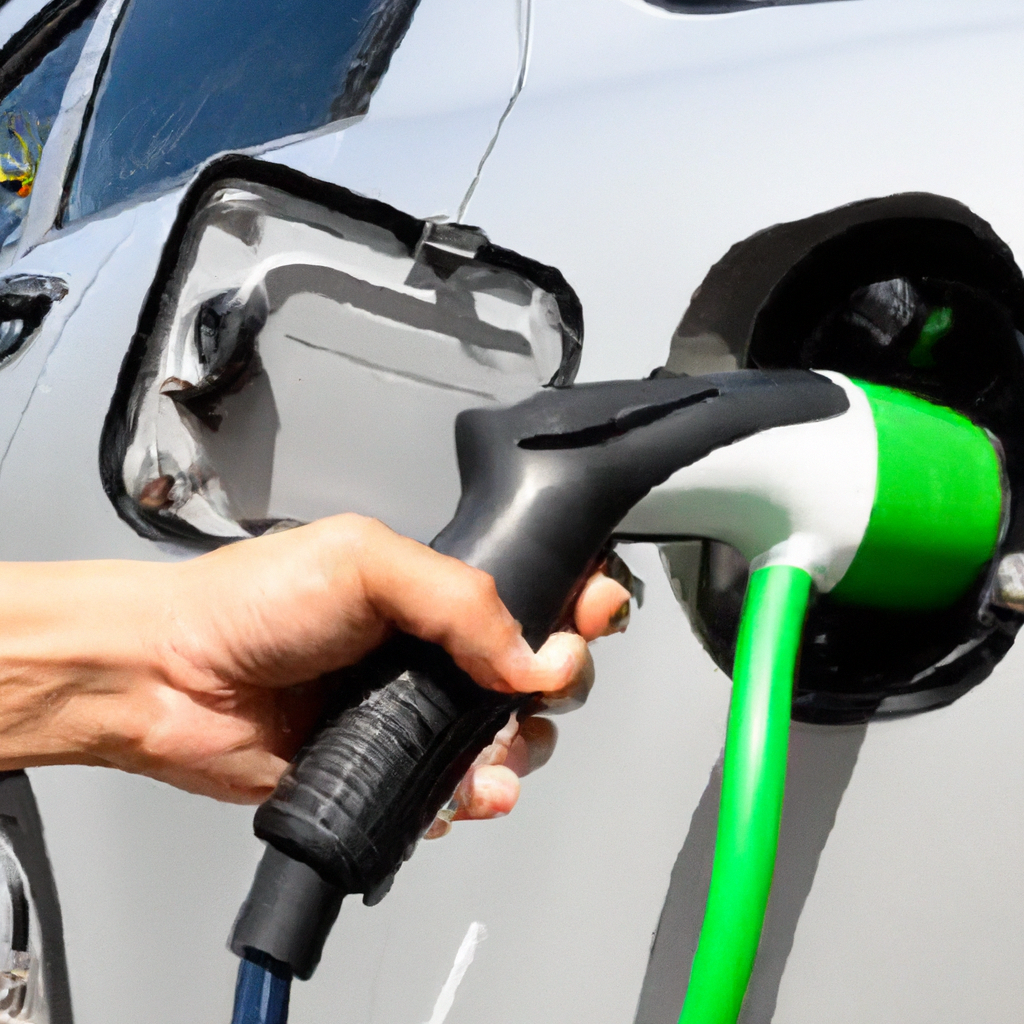How Does The Malaysian Government Support The Growth Of EV Charging Infrastructure?
October 23, 2023 | by Jacob Kang

Are you curious about how the Malaysian government is contributing to the expansion of electric vehicle (EV) charging infrastructure? Look no further, as this article aims to provide you with key insights on the various ways in which the Malaysian government supports the growth of EV charging infrastructure. From implementing financial incentives to encouraging private sector collaborations, the Malaysian government has taken significant steps to foster the development of an extensive and convenient EV charging network. Through this article, we will delve into the specific measures adopted by the government, highlighting their impact on propelling Malaysia towards a greener and sustainable future.

Government incentives for EV charging infrastructure
The Malaysian government recognizes the importance of electric vehicle (EV) charging infrastructure to support the growth of the EV market. To encourage the installation of EV charging stations, various financial grants are provided to both public and private entities. These grants serve as a key incentive for organizations to invest in the necessary infrastructure to facilitate the widespread adoption of EVs.
These financial grants cover a significant portion of the costs associated with installing EV charging stations. They provide the necessary funding for the acquisition and installation of charging equipment, as well as any required infrastructure upgrades. By alleviating the financial burden, these grants make it more feasible for businesses and organizations to establish charging infrastructure, thus expanding the availability of charging stations across the country.
In addition to financial grants, the government also offers tax incentives for EV charging operators. These incentives aim to further support the development and operation of charging infrastructure. By reducing the tax burden on EV charging operators, the government encourages more businesses to enter the market and contribute to the growth of the EV charging network.
Furthermore, the government provides support for research and development in EV charging technology. By investing in R&D initiatives, the government aims to drive innovation in charging solutions. This support enables local researchers and industry experts to explore new technologies, improve charging efficiency, and develop advanced features. By continuously pushing the boundaries of EV charging technology, Malaysia can stay at the forefront of the EV market and ensure the country has the most up-to-date and efficient charging infrastructure.
Expansion of public charging network
To facilitate the widespread use of EVs, it is crucial to expand the public charging network. The Malaysian government is actively increasing the number of public charging stations across the country, making it more convenient for EV owners to find charging facilities. This expansion ensures that EVs can be easily charged, even during long-distance travels.
To accelerate the growth of the public charging network, the government collaborates with private entities. By partnering with private companies, the government leverages their expertise and resources to establish charging stations in various strategic locations. This collaboration enables the government to rapidly expand the charging network, benefiting both urban and rural areas.
Efforts to expand the public charging network also involve integrating charging infrastructure with existing parking facilities. By combining these two essential components, the government maximizes the utilization of existing infrastructure. Parking facilities provide an ideal opportunity for EV charging stations, as they are often located in convenient areas and already equipped with electrical connections. Integration of charging infrastructure with parking facilities promotes the widespread availability of charging stations, making it easier for EV owners to charge their vehicles while going about their daily activities.

Regulatory framework for EV charging
To ensure the efficient and safe operation of EV charging infrastructure, the Malaysian government has established a comprehensive regulatory framework. This framework includes the establishment of standards for charging infrastructure, licensing and certification of EV charging operators, and the regulation of pricing and payment systems.
By setting standards for charging infrastructure, the government ensures that all charging stations meet the necessary safety and technical requirements. These standards serve as a benchmark for the quality and reliability of charging equipment, giving EV owners peace of mind when utilizing the charging facilities.
Licensing and certification of EV charging operators are essential to ensure that only qualified and reputable companies are involved in the operation of charging infrastructure. Through a rigorous licensing process, the government evaluates the capabilities and qualifications of operators, ensuring that they have the necessary expertise to provide reliable and efficient charging services. Certification further validates the competence and adherence to quality standards, promoting consumer trust in the charging infrastructure.
To foster fair and transparent pricing, the government regulates pricing and payment systems for EV charging. By implementing regulations, the government ensures that charging fees are reasonable and reflective of the services provided. Additionally, standardized payment systems simplify the charging process for EV owners, allowing for convenient and hassle-free payments.
Promotion of EV adoption
To accelerate the adoption of EVs, the Malaysian government implements various measures to incentivize the purchase of electric vehicles. These incentives are designed to make EVs more affordable and appealing to potential buyers.
One of the key incentives is financial assistance for purchasing electric vehicles. Through government-supported programs, individuals and businesses can access financial aid in the form of subsidies or grants when purchasing an EV. These financial incentives significantly reduce the upfront costs of EVs, making them a more viable option for a wider range of consumers.
In addition to financial assistance, the government conducts awareness campaigns and educational initiatives to inform the public about the benefits of EVs. These campaigns aim to dispel misconceptions and increase the understanding of EV technology, addressing any concerns potential buyers may have. By highlighting the environmental advantages, cost savings, and technological advancements of EVs, the government encourages more individuals to consider making the switch to electric vehicles.
Furthermore, collaboration with automakers plays a crucial role in the promotion of EV adoption. The government partners with automakers to introduce more affordable EV models to the market. By working closely with manufacturers, the government aims to make EVs accessible to a wider demographic, ensuring that there are options available for different budget ranges. This collaboration drives innovation in the automotive industry, leading to the development of more efficient and cost-effective electric vehicles.

Partnership with energy providers
The collaboration between the Malaysian government and energy providers is crucial to ensure the reliability of the electrical grid and the integration of renewable energy sources in charging infrastructure. By partnering with energy companies, the government can address the increased demand for electricity resulting from the widespread adoption of EVs.
Collaboration with energy providers ensures that the electrical grid can support the charging needs of EVs without straining the existing infrastructure. It involves the development and implementation of smart grid technologies, which enable efficient management and distribution of electricity. By incorporating advanced monitoring and control systems, the government can optimize the power supply and prevent any potential overload.
Incorporating renewable energy sources in charging infrastructure is another priority for the government. By harnessing clean and sustainable energy, EV charging becomes more environmentally friendly and aligns with the overall goal of reducing carbon emissions. Through partnerships with energy providers, the government promotes the integration of solar, wind, and other renewable energy sources into charging stations, making EV charging a sustainable and eco-friendly option.
Additionally, the government actively encourages the development of smart charging solutions. Smart charging utilizes data and intelligent algorithms to optimize the charging process, taking into account factors such as grid capacity, electricity prices, and user preferences. By investing in the research and development of smart charging technologies, the government aims to enhance the efficiency and convenience of EV charging, ultimately benefiting EV owners and the energy sector as a whole.
Support for EV charging startups
Recognizing the importance of innovation in the EV charging industry, the Malaysian government provides support for local EV charging startups. This support comes in the form of funding opportunities, incubation programs, and networking events.
Funding opportunities enable EV charging startups to access the necessary financial resources to develop and commercialize their products or services. The government provides grants or low-interest loans specifically tailored for startups, giving them the financial boost needed to bring their innovative charging solutions to the market.
Incubation programs play a crucial role in nurturing innovation in charging technology. These programs provide startups with a supportive environment where they can receive guidance, mentorship, and access to resources. By partnering with incubators and accelerators, the government ensures that promising charging startups have the necessary support to thrive and succeed in the competitive EV market.
Networking events and industry collaborations are also facilitated by the government to foster connections and knowledge sharing among startups and established industry players. These events provide opportunities for startups to showcase their innovations, forge partnerships, and learn from industry experts. By creating a collaborative ecosystem, the government promotes the growth and development of local charging startups, positioning Malaysia as a leader in EV charging technology.

Research and development initiatives
To drive advancements in EV charging technology, the Malaysian government invests in research and development initiatives. By allocating resources and funding to research institutions, universities, and industry experts, the government supports the exploration of new technologies, improvement of charging efficiency, and development of innovative charging solutions.
Investment in EV charging technology research enables experts to delve into various areas such as battery technology, charging infrastructure optimization, and smart charging algorithms. By conducting research and experiments, scientists and engineers can discover breakthroughs that contribute to the overall improvement of EV charging systems.
Collaboration with universities and research institutions is another important aspect of promoting research and development in charging technology. By partnering with academic institutions, the government facilitates the exchange of knowledge and expertise. This collaboration ensures that cutting-edge research is applied to real-world charging solutions, leading to continuous improvements and advancements in the field.
Furthermore, the government encourages local innovation in charging solutions. By fostering a culture of innovation and providing support for local entrepreneurs and startups, Malaysia becomes a hub for the development and commercialization of new charging technologies. This localized innovation not only drives economic growth but also enhances the competitiveness of the Malaysian EV charging industry on a global scale.
Inclusion of EV charging in urban planning
The Malaysian government recognizes the importance of incorporating EV charging infrastructure in urban planning. By integrating charging facilities into urban development projects, the government ensures that charging stations are readily available in high-demand areas such as residential complexes, shopping centers, and office buildings.
Integration of charging infrastructure in urban development projects promotes the widespread adoption of EVs by providing convenient and easily accessible charging options. By designing new buildings and infrastructure with charging capabilities in mind, the government eliminates any logistical barriers that may hinder the adoption of EVs. This proactive approach encourages EV ownership and contributes to the overall growth of the EV market.
To incentivize developers to include charging facilities in buildings, the government offers various incentives. These incentives may include expedited permits, tax breaks, or other forms of support that reduce the financial burden associated with installing charging infrastructure. By providing these incentives, the government encourages developers to invest in EV charging infrastructure, ensuring the availability of charging stations in residential and commercial areas.
Furthermore, the government promotes the concept of EV-friendly cities. By prioritizing the development of charging infrastructure and creating an ecosystem that supports EVs, Malaysian cities become attractive for residents and businesses looking to adopt electric vehicles. This focus on EV-friendly cities not only contributes to the reduction in carbon emissions but also enhances the overall quality of life for residents.

Government support for EV charging equipment manufacturers
To stimulate the growth of the EV charging industry, the Malaysian government provides support for EV charging equipment manufacturers. By offering incentives for the local production of charging equipment, the government encourages the establishment of manufacturing facilities within the country.
Incentives for local production of charging equipment include tax incentives, grants, and support in accessing favorable financing options. These incentives make it more attractive for manufacturers to set up operations in Malaysia, leading to job creation and economic growth.
Additionally, the government supports the export of Malaysian charging solutions. By facilitating partnerships between charging equipment manufacturers and other countries, the government helps local manufacturers reach international markets. This support includes assistance in navigating export regulations, establishing distribution channels, and participating in international trade shows and exhibitions. By promoting Malaysian charging solutions globally, the government enhances the country’s reputation as a leader in EV charging technology.
Furthermore, the government plays a pivotal role in fostering partnerships between charging equipment manufacturers and research institutions. By facilitating collaboration, the government promotes the development of cutting-edge charging solutions that incorporate the latest advancements in technology. These partnerships drive innovation, improve charging efficiency, and help manufacturers stay at the forefront of the industry.
International collaborations and knowledge sharing
To stay abreast of global advancements in EV charging infrastructure, the Malaysian government actively participates in international forums, conferences, and collaborations. By engaging with other countries and organizations, Malaysia can learn from best practices in other regions and share its own experiences and knowledge.
Participation in international EV charging forums and conferences allows the government to exchange ideas, insights, and technological advancements with industry experts from around the world. These events serve as platforms for knowledge sharing, fostering international collaborations, and identifying emerging trends in the EV charging industry. By staying connected to the global EV community, the government ensures that Malaysia remains up-to-date with the latest developments and can implement relevant strategies within the local context.
Sharing best practices with other countries is another important aspect of international collaboration. By showcasing Malaysia’s successes and lessons learned in promoting EV charging infrastructure, the government can inspire and guide other nations in their own efforts. This sharing of knowledge contributes to the growth and standardization of EV charging practices globally, fostering a more sustainable and interconnected EV ecosystem.
Collaboration with international organizations in EV charging initiatives enables Malaysia to leverage the expertise and resources of global stakeholders. Through these partnerships, the government gains access to valuable insights, funding opportunities, and technical assistance. This collaboration strengthens Malaysia’s position as a key player in the global EV charging industry and enhances the country’s ability to contribute to the development of international standards and regulations.
In conclusion, the Malaysian government’s support for the growth of EV charging infrastructure encompasses a comprehensive range of initiatives. From financial grants and tax incentives for infrastructure installations to the expansion of the public charging network and the establishment of a regulatory framework, the government plays a crucial role in fostering the development of a robust and sustainable EV charging ecosystem. The promotion of EV adoption, partnership with energy providers, support for startups, research and development initiatives, inclusion of EV charging in urban planning, support for equipment manufacturers, and international collaborations further demonstrate Malaysia’s commitment to driving the growth of EV charging infrastructure. With these initiatives in place, Malaysia is well-positioned to embrace the electric revolution and establish itself as a leader in the global transition towards sustainable transportation.
RELATED POSTS
View all

